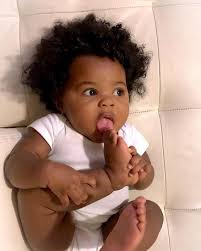December 10, 2010
Growing up in Benin-City, Nigeria, there was this bitter nut that old people loved to chew on at almost every hour of the day. It was synonymous with being an elder, old age, longevity, and wisdom. The old people loved it because it kept them awake at all times and it gave them a sense of prestige because the younger ones so hated the taste that they looked at the old with awe when they chewed on it majestically.
At important events, family gatherings, or at ceremonies, the oldest male present is given the honor of breaking the kola nut with prayers before it is given to a youth to slit into many parts for those who dare to chew on it. Younger children are discouraged from eating it because of its high caffeine content. If there is a great-grand mother present or the oldest person is a female, she is given the honor of touching the kola nut, but it is the eldest male that breaks it. One of the first or most common prayers he says while he breaks the kola nuts is that “the one who brings kola brings life”. I always wondered why women where not allowed to break the kola nut at ceremonies, until I came to the United States of America (USA) to see the catastrophe of fatherless homes. Fatherless homes are responsible for over 70% of teenage pregnancy, high school drop-out, suicide, drug use, depression, prostitution, HIV/AIDS, crime, and unemployment in the United States.
In Africa, it is said that a woman is the home. She does not only bring forth children, but there is almost never a place were children are gathered and a woman is not present. An average woman thinks of her children even before she thinks of herself and will freely give her life for her children. Even in the United States of America (USA), a mother is considered the primary caretaker of the child, not the father, even if he is very active. In most homes with children, a woman is always present. The big question is: Will those children have a father or a male figure in their lives?
The psychological purpose of giving the oldest male the honor of breaking the kola nut and praying for everyone (in front of women and children) is to make the young boys see the value of family, being the head, living a long life, having women and children look up to them, and being productive to justify the respect from a very young age. Women, because of rearing children, will always find the means to care for her children. It is very easy for a man to walk away, so the ancient world psychologically figured out how to make a man feel honorable by staying. Many men usually put honor and respect over money, so they are given the honor of breaking the kola nut in front of the women and children if they live long enough to be the oldest male in a particular place.
Child rearing is a natural motivation for women to be healthy and live long, while honor and respect is for men. Show me a community where the men have no respect from women and I show you a place that has embraced fatherless homes and waywardness for their young males. Young Black boys need to see more fathers or males taking the lead at family events and ceremonies in front of women and children. It is when they see this that they make private pledges to live long to have that honor too. A private pledge to live long requires one to embrace wisdom to make good decisions, productivity to sustain the long life, and most importantly, respect for women and their seeds to give him that honor when the time comes.








